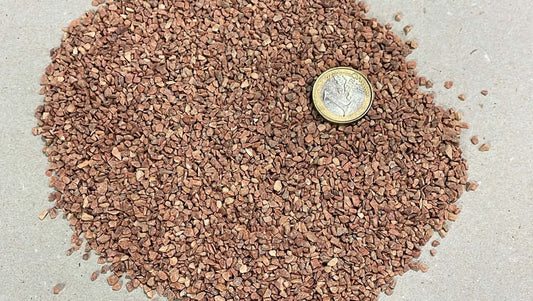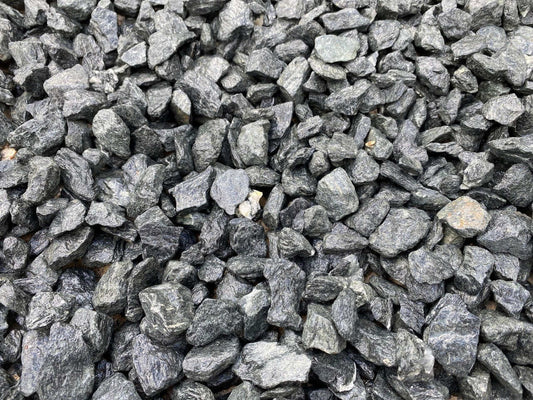No he podido todavía comprobar la eficacia. Es muy pronto. En 2 meses escribiré de nuevo. La entrega fue rapidísima. Me lo entraron a casa con un palet. Todo muy bien empaquetado y protegido. Sin duda volveré a recurrir a vosotros para la compra de mis sustratos y fertilizantes.
Collection: Dunite
Dunite is a plutonic ultramafic igneous rock, which means it was formed by the slow cooling of magma deep in the Earth's crust. It is composed mainly of olivine, a mineral made up of magnesium and iron silicate. Dunite may also contain small amounts of other minerals such as pyroxene, chromite, and plagioclase.
As you mention, olivine is a major component of dunite, and it's important not to confuse these two terms: olivine is a mineral, while dunite is a rock that contains mostly olivine.
Dunite has several industrial and agricultural uses due to its properties and composition. Some of these uses include:
- Steel Castings: Dunite is used as a refractory material in steel castings. Its properties, such as high heat resistance and low thermal expansion, make it ideal for making refractory bricks and linings for furnaces and converters used in steel production.
- Agricultural Amendment: Dunite is rich in magnesium, an essential nutrient for plant growth. When pulverized and applied to the soil, dunite can improve soil quality by increasing magnesium levels and correcting acidity problems. Some benefits of using dunite as an agricultural amendment include:
- Improvement of soil structure: Dunite helps improve soil structure, increasing aeration and drainage, which favors the development of plant roots.
- Correction of soil acidity: Dunite has alkaline properties, which means it can neutralize acidic soils and balance the pH, creating a more conducive environment for plant growth.
- Nutrient supply: In addition to magnesium, dunite may also contain small amounts of other nutrients, such as calcium, iron and phosphorus, which are essential for plant growth.
- Carbon sequestration: Olivine in dunite can react with carbon dioxide (CO2) in soil and water, helping to capture and store carbon in the form of carbonate minerals. This can contribute to reducing the amount of CO2 in the atmosphere
In summary, dunite is an igneous rock composed mainly of olivine, and it has a variety of uses in different industries. Its resistance to heat and its composition rich in magnesium make it especially useful in steel foundries, as an agricultural amendment and in the manufacture of construction products.
-
Projected arid monolayed mortar for facades
regular price A partir de 5,20 €regular priceUnit price / per -
Dunita Olivina | Magnesium revitalizer
regular price A partir de 8,90 €regular priceUnit price / per -
Olivine Dunita
regular price A partir de 7,25 €regular priceUnit price / per -
Polymers Paints Microcement Loads - Color Sands
regular price A partir de 165,00 €regular priceUnit price / per
Subscribe to our emails
Discover how technical minerals can transform your company.







